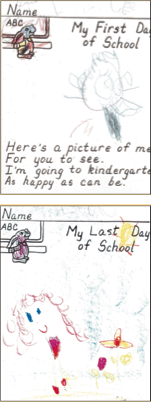Assess Regularly for Treatment-Related Learning Problems
Neuropsychologists play a key role in helping identify cognitive issues in childhood cancer survivors and in developing rehabilitation programs to increase their functioning, Lisa A. Jackson, PhD, said at the Cancer in the Classroom meeting hosted by Roswell Park Cancer Institute.
BUFFALO, New YorkNeuropsychologists play a key role in helping identify cognitive issues in childhood cancer survivors and in developing rehabilitation programs to increase their functioning, Lisa A. Jackson, PhD, said at the Cancer in the Classroom meeting hosted by Roswell Park Cancer Institute.
"When a family or teacher identifies a cancer survivor with learning issues, our first challenge is to determine if a child has global problems or if they have a distinct difficulty in a specific subject," said Dr. Jackson, a neuropsychologist in the Department of Neurology, State University of New York (SUNY) at Buffalo. "Sometimes the learning issue might be geneticfor example, a learning disorder that runs in familiesbut we more often see trends in learning abilities brought on by the treatments required to cure their cancer."
At the University of Buffalo, the neuropsychologist recommends that children who have been treated for cancer be assessed for cognitive impairments approximately every 2 years. The testing takes approximately 6 hours and provides a complete picture of how a child functions across many neuropsychological or cognitive areas. The tests measure intelligence, sensory-motor skills, visual-perceptual skills, auditory-language abilities, memory, executive functions (problem-solving, reasoning, attention, etc), and personality. The results allow those professionals working with the child to develop methods that will enhance future learning and skills development.

A 5-year-old female cancer survivor's attempt to draw herself (top) shows an obvious learning disability. After several months of intensive assistance and therapy, the drawing at bottom reveals noted improvement.
"We know that any child who has received radiation treatment to the central nervous system is at greater risk for learning concerns," Dr. Jackson said. "There is also a trend for poorer performance in girls and in children who have been treated at an early agemost often before age 5. However, the earlier parents and caregivers bring in a neuropsychologist to assist the child, the greater the opportunity for interventions that can have a positive impact on the child's ability to learn" (see Figure).
When the testing is complete, parents and teachers are invited to participate in a review and discussion of the results, Dr. Jackson said. Based on the deficits identified, recommendations can be offered to teach a child how to compensate for the weaknesses and a school district can be involved in setting up an IEP (individualized education program) or 504 plan accommodations. (A 504 plan is a plan for a program of instructional services to assist students with special needs who do not directly quality for IEP yet still require assistance or services.)
"We know that even older children with cancer suffer from the effects of their treatments. School absences and fatigue can complicate learning," Dr. Jackson said. "The impact of cancer therapy may play a role as they continue to grow. Radiation and chemotherapy may result in calcifications in the brain that will interfere with myelin and nerve cell growth and development."
The most common issues for childhood cancer survivors may involve slower speeds of information processing, visual-spatial and/or perceptual deficits, attention concerns, and memory deficits. While children may be able to recall information learned before treatment, they often struggle with new concepts. Furthermore children may be able to understand math concepts, but be unable to remember math facts such as the multiplication tables.
Recommendations
Some of the top recommendations offered for helping children cope with such learning problems include an emphasis on oral-based testing, extended assignment and test time, and teaching step-by-step methods with estimation learning. For all children, faculty and parents should stress learning based more on listening and speaking skills than on reading and writing skills, Dr. Jackson said.
"In all, the earlier one can identify problems associated with cancer-treatment effects, the greater the likelihood of the child's ability to learn alternative educational strategies and to compensate for his or her treatment-based impairments," she concluded.
How Supportive Care Methods Can Improve Oncology Outcomes
Experts discussed supportive care and why it should be integrated into standard oncology care.
How Supportive Care Methods Can Improve Oncology Outcomes
Experts discussed supportive care and why it should be integrated into standard oncology care.
2 Commerce Drive
Cranbury, NJ 08512
All rights reserved.